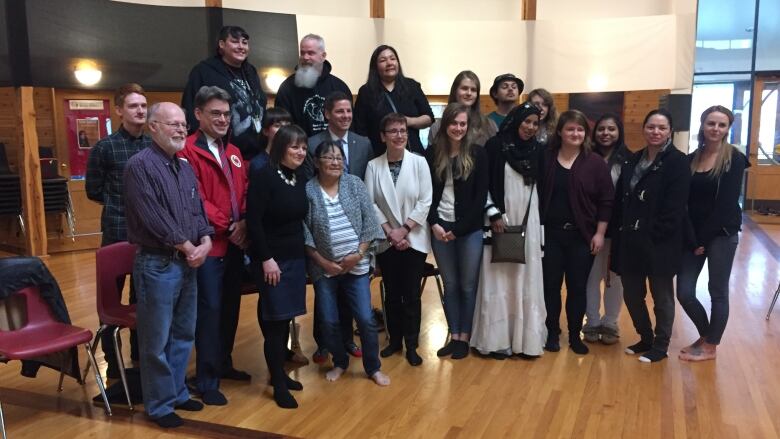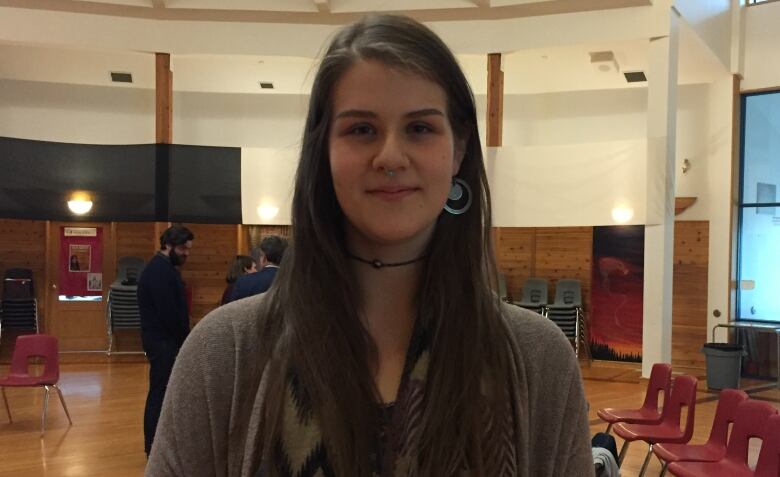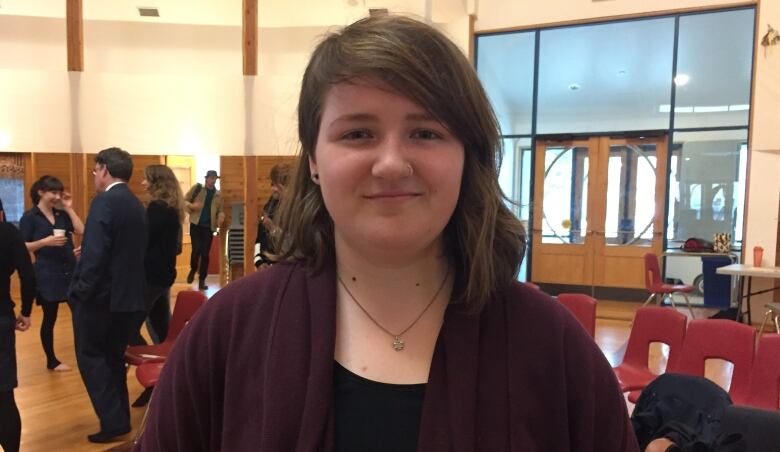Bridging cultures, neighbourhoods, aim of work-study program at U of Winnipeg
University program aims to break down divisions in city once dubbed Canada's most racist

Students from Winnipeg's inner-city and suburban neighbourhoods will soon begin to work and study together for 15 weeks as part of a university program aimed at breaking down divisions in a city once dubbed 'Canada's most racist.'
YouthUnited@Winnipeg is a two-year pilot project in which 20 students will study in the University of Winnipeg's urban and inner-city studies department while working for community organizations an opportunity to connect the theories and strategies they learn in the classroom with their work in the inner city.
It's all in the name of reconciliation.
"I want to be involved, hands on, with reconciliation in our inner city, and it seemed like the right opportunity to get right in to jump right in," said Rachel Petkau, 21, one of the program's first participants.
"I would love to see the breaking down of the barriers between people and more understanding between communities."
A city divided
Originally from the Big Grassy First Nation in Ontario, Petkau now calls Winnipeg home a city she said is divided by both race and geography.
"We have the [train] tracks literally dividing the city, and it's a physical barrier as well as a social barrier," she said, referring to the rail lines that run through the centre of Winnipeg.

That's why it's so important that the program involve people who aren't originally from the inner city, organizers said at its launch, which took place downtown at Thunderbird House, one of the city's most well-known Indigenous cultural and community gathering places.
- Reconciliation report card: Work remains for cities
- Truth and Reconciliation offers 94 'calls to action'
"This program, for me, is bringing communities together," said Marie Bergen, 23, a non-Indigenous participant who's studying human rights at the University of Winnipeg.
"It helps illuminate how this areaisn't just somewhere to be afraid of."
Bergen said shelooks forward to seeing friendships and partnerships grow between Indigenous and non-Indigenous participants and for each side to see itself as equal to the other.
Starting point
The program was createdby Winnipeg city Coun. Brian Mayes, who said he was inspired by U.S.-based "urban peace corps" programs, anddesigned at the University of Winnipeg.

"Hopefully the long-term benefit is that, especially for the students who are not from the inner city and not Indigenous, that they go back to their communities and they are better able to address racism when they see it with new perceptions of the inner city, new perceptions of Indigenous people," said Shauna McKinnon, who will facilitate the program.
"That's the starting point of a process of reconciliation."












_(720p).jpg)


 OFFICIAL HD MUSIC VIDEO.jpg)
.jpg)



























































































